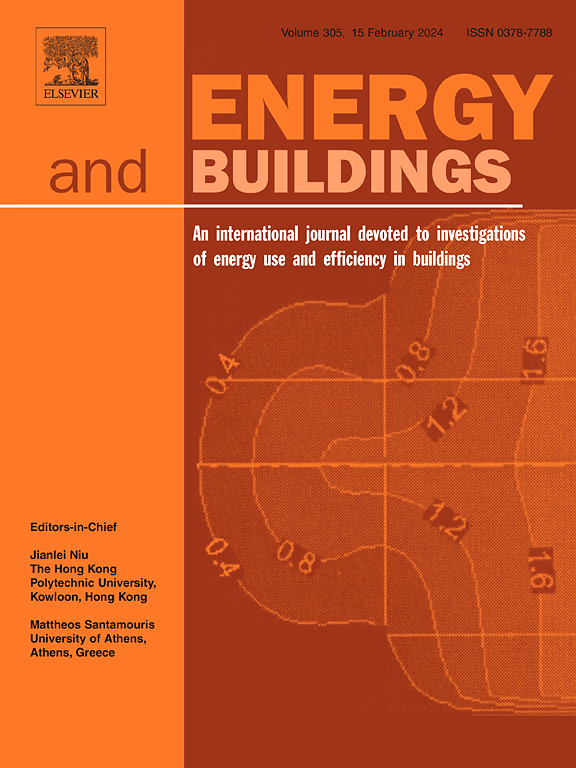影响家庭适应性节能升级以应对能源危机的因素:挪威案例
IF 6.6
2区 工程技术
Q1 CONSTRUCTION & BUILDING TECHNOLOGY
引用次数: 0
摘要
与建筑相关的家庭个人能效提升行为对减少碳排放至关重要,但在挪威,了解这些行为的预测因素是一项研究挑战。本研究的主要目的是调查挪威家庭采用能效升级的模式,尤其是在应对能源危机时。研究旨在确定社会人口、住宅相关、家庭背景和心理因素如何影响家庭在三种节能措施方面的行为,这三种措施是:安装私人光伏发电设备、灵活用电和住宅隔热。根据2023年从挪威家庭收集到的调查数据(N = 3514),研究指出,在过去三年中,由于社会规范、自我效能以及能源危机后支持能源系统的动力增强等因素的推动,所有这三项能效升级措施都出现了大幅增长。研究还预计,受社会压力、更广泛的技术应用以及降低能源成本的强烈愿望的影响,私人光伏系统和灵活用电将在未来三年内快速增长。采用私人光伏系统的主要是高收入家庭,这主要受到固定成本高、制度激励不足、电价大幅上涨以及危机后支持能源系统的承诺等因素的影响。灵活用电的快速普及在很大程度上受到社会规范和技术与日常生活的兼容性的影响。推动隔热行动的关键因素包括楼龄、具备必要体能和技能的年轻家庭成员的存在,以及正确的时间观念。此外,居住时间长短也会影响采用模式,较新的居民会优先考虑通过高科技措施实现个性化,而长期居住的居民则侧重于保持隔热性能。本研究还将讨论对政策制定者根据家庭情况设计激励措施以及对投资者改进市场策略的潜在影响。本文章由计算机程序翻译,如有差异,请以英文原文为准。
Factors affecting households’ adaptive energy-efficient upgrades in response to the energy crisis: The Norwegian case
Individual household energy-efficiency upgrading behaviours in relation to buildings are crucial in mitigating carbon emissions, yet understanding the predictors of these behaviours in the Norwegian context presents a research challenge. The principal aim of this study is to investigate the adoption patterns of energy-efficiency upgrades by Norwegian households, particularly in response to the energy crisis. It seeks to determine how socio-demographic, dwelling-related, household contextual, and psychological factors affect household behaviours concerning three upgrading measures – namely, private photovoltaic (PV) installation, flexible electricity use, and dwelling insulation. Based on survey data (N = 3514) collected in 2023 from Norwegian households, the study delineates a significant upsurge in all these three energy-efficiency upgrades within the past three years, driven by social norms, self-efficacy, and increased motivation to support the energy system after the energy crisis. The study also anticipates rapid growth in private PV systems and flexible electricity use over the next three years, influenced by social pressures, wider technology adoption, and a stronger desire to cut energy costs. The adoption of private PV systems is predominantly seen among high-income households, which is influenced by high fixed costs, inadequate institutional incentives, substantial rises in electricity prices, and a commitment to supporting the energy system post-crisis. The quick uptake of flexible electricity use is significantly influenced by social norms and technology’s compatibility with daily routines. Key factors driving insulation actions include the building age, the presence of younger household members with the necessary physical capability and skills, and the right timing perceptions. In addition, residential duration influences adoption patterns, with newer residents prioritizing personalization through high-tech measures and long-term residents focusing on maintaining insulation. This study will also discuss potential implications for policymakers in designing incentives tailored to households’ profiles and for investors in improving market strategies.
求助全文
通过发布文献求助,成功后即可免费获取论文全文。
去求助
来源期刊

Energy and Buildings
工程技术-工程:土木
CiteScore
12.70
自引率
11.90%
发文量
863
审稿时长
38 days
期刊介绍:
An international journal devoted to investigations of energy use and efficiency in buildings
Energy and Buildings is an international journal publishing articles with explicit links to energy use in buildings. The aim is to present new research results, and new proven practice aimed at reducing the energy needs of a building and improving indoor environment quality.
 求助内容:
求助内容: 应助结果提醒方式:
应助结果提醒方式:


